
Les Minquiers: A Hidden Gem in Jersey's Waters
Les Minquiers, often referred to as The Minkies, is an enchanting group of islands and reefs located in the English Channel, just 24 kilometers south of Jersey. This unique destination is renowned for its pristine natural beauty, crystal-clear waters, and abundant marine life. The islets are part of the Bailiwick of Jersey and offer a rare opportunity to explore one of the most untouched environments in Europe. The main islet, Maîtresse Île, is the largest of Les Minquiers and features a small cluster of fishermen’s huts, providing a glimpse into the traditional way of life. During low tide, the sandbanks and reefs are exposed, creating a breathtaking landscape perfect for beachcombing, picnicking, and photography. High tide transforms the area into an idyllic marine sanctuary, ideal for snorkeling, diving, and sailing. Les Minquiers is also a paradise for bird watchers, with a variety of seabirds nesting in the area. The tranquility and isolation of the islands make it a perfect retreat for those seeking peace and a deeper connection with nature. To visit Les Minquiers, tourists typically arrange boat trips from Jersey, as there are no permanent residents or regular transport services to the islets.
Local tips in Les Minquiers
- Check tide times before visiting to experience both the exposed reefs and the marine sanctuary.
- Bring your own food and supplies, as there are no facilities on the islets.
- Book a guided boat tour from Jersey for a safe and informative visit.
- Wear appropriate footwear for walking on the rocky and sandy surfaces.
- Don't forget binoculars for bird watching and a camera to capture the stunning landscapes.
Les Minquiers: A Hidden Gem in Jersey's Waters
Les Minquiers, often referred to as The Minkies, is an enchanting group of islands and reefs located in the English Channel, just 24 kilometers south of Jersey. This unique destination is renowned for its pristine natural beauty, crystal-clear waters, and abundant marine life. The islets are part of the Bailiwick of Jersey and offer a rare opportunity to explore one of the most untouched environments in Europe. The main islet, Maîtresse Île, is the largest of Les Minquiers and features a small cluster of fishermen’s huts, providing a glimpse into the traditional way of life. During low tide, the sandbanks and reefs are exposed, creating a breathtaking landscape perfect for beachcombing, picnicking, and photography. High tide transforms the area into an idyllic marine sanctuary, ideal for snorkeling, diving, and sailing. Les Minquiers is also a paradise for bird watchers, with a variety of seabirds nesting in the area. The tranquility and isolation of the islands make it a perfect retreat for those seeking peace and a deeper connection with nature. To visit Les Minquiers, tourists typically arrange boat trips from Jersey, as there are no permanent residents or regular transport services to the islets.
When is the best time to go to Les Minquiers?
Iconic landmarks you can’t miss
Jersey War Tunnels
Explore the Jersey War Tunnels, a poignant museum illuminating the island's WWII history through immersive exhibits and personal stories of resilience.
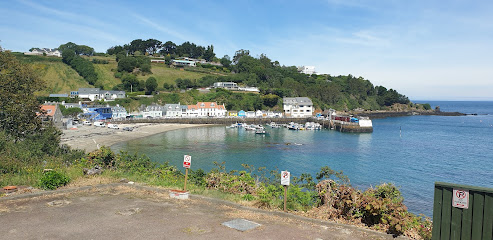
Mont Orgueil Castle
Discover the rich history and breathtaking views at Mont Orgueil Castle, a must-see landmark in the heart of Jersey.
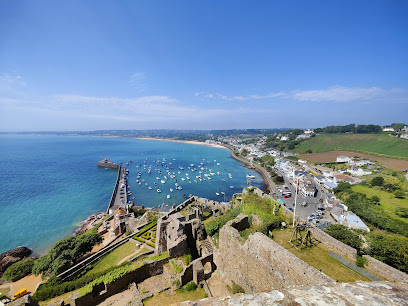
Elizabeth Castle
Discover the historical splendor of Elizabeth Castle, a 16th-century fortification offering rich heritage and stunning coastal views in Jersey.
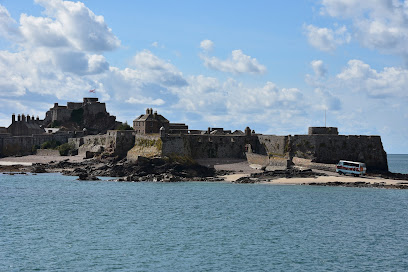
Les Jardins de la Mer
Discover the serene beauty of Les Jardins de la Mer in St Helier, Jersey – a tranquil escape filled with vibrant flora and stunning coastal views.
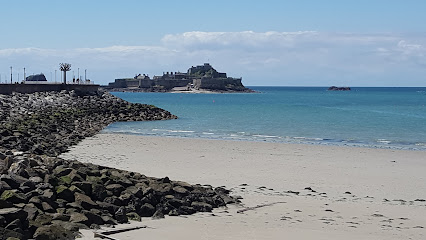
La Hougue Bie Museum
Explore Jersey's ancient past at La Hougue Bie Museum, a local history museum showcasing archaeological treasures and engaging exhibits.
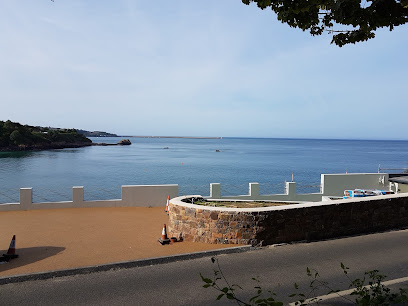
Grosnez Castle
Discover the enchanting ruins of Grosnez Castle, a historical gem perched on Jersey's cliffs, offering stunning coastal views and a glimpse into the island's medieval past.
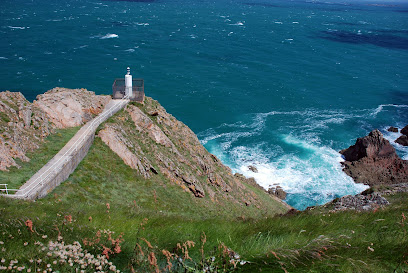
Channel Islands Military Museum
Discover the rich military history of the Channel Islands at the engaging and informative Channel Islands Military Museum in St Ouen, Jersey.
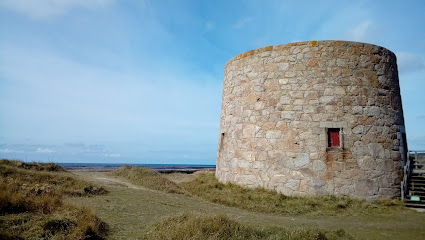
Sorel Point
Explore the breathtaking views and natural beauty at Sorel Point, a must-visit scenic spot in Jersey known for its stunning coastal landscapes.
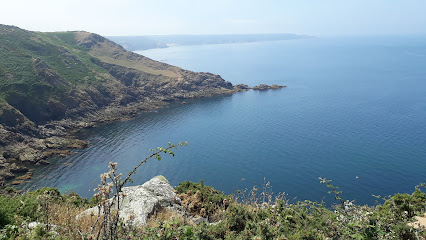
Reg's Award Winning Gardens
Explore the stunning Reg's Award Winning Gardens in Jersey, where vibrant floral displays and tranquil pathways create the perfect retreat for nature lovers and tourists.
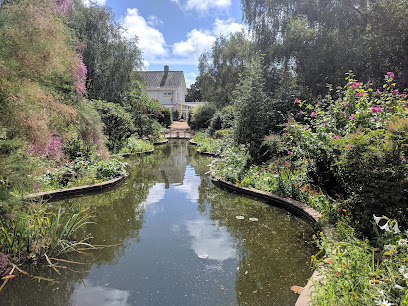
Strong Point Corbiere
Explore the historical significance and breathtaking views at Strong Point Corbiere, a must-visit tourist attraction in Jersey.
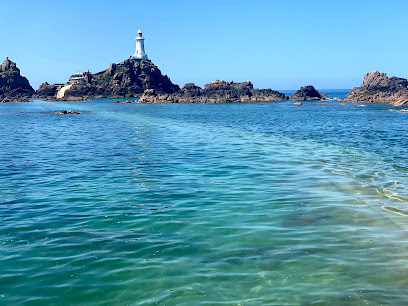
Le Moulin de Quétivel
Explore the rich history of Jersey at Le Moulin de Quétivel, a beautifully restored water mill and heritage museum set in picturesque surroundings.
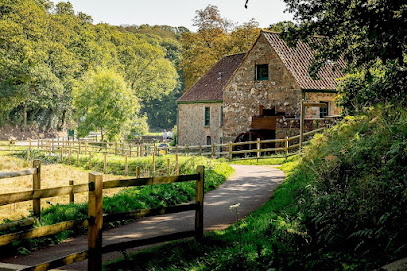
Judith Queree's Garden
Discover the enchanting beauty of Judith Queree's Garden in Jersey, a tranquil oasis filled with vibrant blooms and serene landscapes perfect for relaxation.
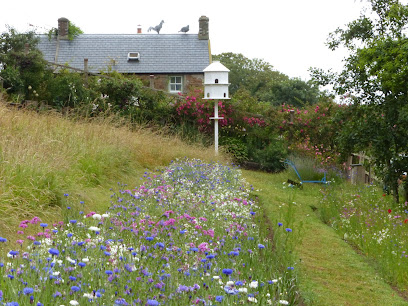
Janvrin's Tomb
Experience the rich history and breathtaking views at Janvrin's Tomb, an ancient burial site on the stunning Jersey Island.
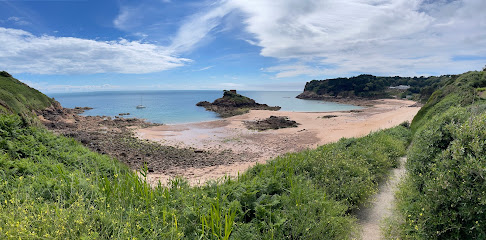
The Elms (NTJ)
Explore The Elms in Jersey, a serene tourist attraction showcasing lush gardens and rich heritage, perfect for relaxation and cultural discovery.
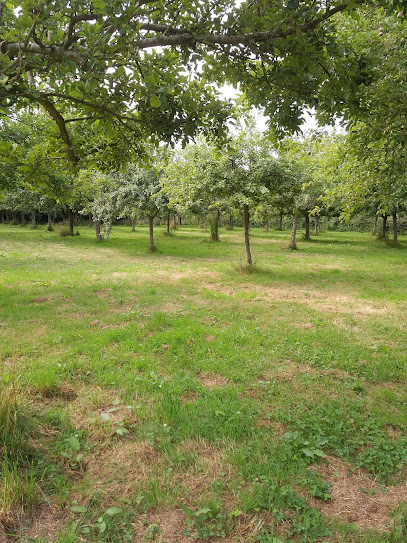
Icho Tower
Discover Icho Tower, a historic landmark in Jersey, where rich heritage meets breathtaking coastal views, perfect for history enthusiasts and nature lovers alike.
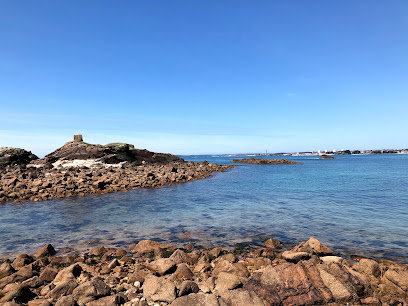
Unmissable attractions to see
La Coupe Bay
Discover the serene beauty of La Coupe Bay, a hidden beach gem on Jersey's North Coast, perfect for relaxation and nature exploration.
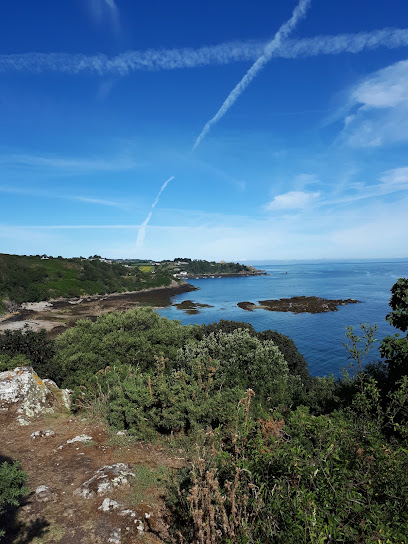
Le Don Sinkins (site of former willow toad)
Experience the serenity and natural beauty of Le Don Sinkins, a picturesque hiking area in Jersey perfect for outdoor enthusiasts and nature lovers.
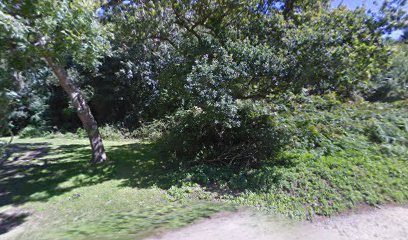
Moignard Liberation Garden
Discover the Moignard Liberation Garden in Jersey, a peaceful sanctuary celebrating the island's history with vibrant flora and serene landscapes.
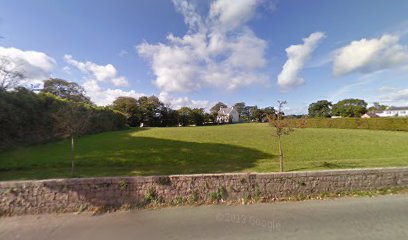
Bayeux Shuttle - Meehan Memorial
Explore the Bayeux Shuttle - Meehan Memorial, a poignant tribute to D-Day heroes in Sainte-Mère-Église, Normandy's historical heart.
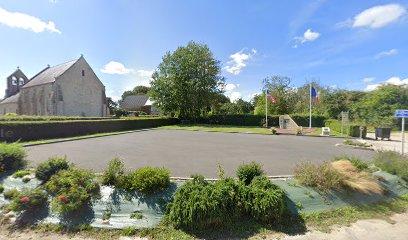
Blockhouse
Discover the historic Blockhouse in Plémont, a coastal gem where maritime history meets breathtaking scenery on the beautiful island of Jersey.
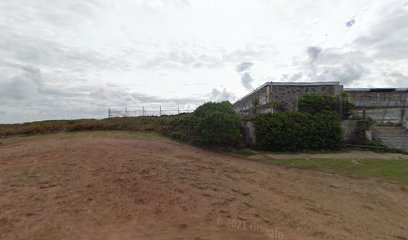
Essential places to dine
The Hungry Man
Discover The Hungry Man in Jersey – where delicious fast food meets local charm at affordable prices.
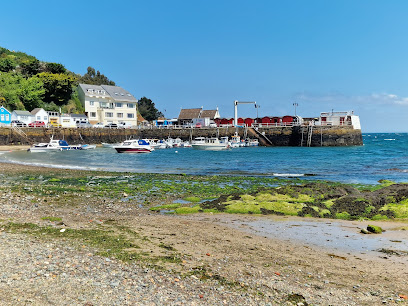
The Boat House
Experience exquisite dining at The Boat House in St Aubin - where local flavors meet stunning waterfront views.
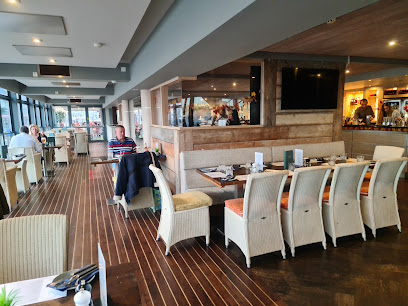
Old Smugglers Inn
Experience the rich flavors and welcoming ambiance at Old Smugglers Inn in Jersey – where tradition meets taste.
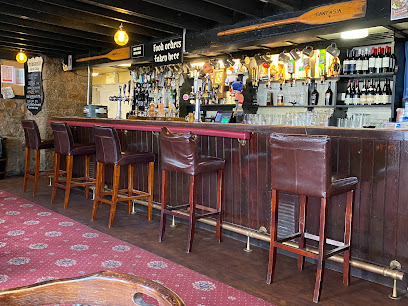
The Lookout Beach Cafe & Restaurant
Experience exquisite dining with breathtaking ocean views at The Lookout Beach Cafe & Restaurant in Jersey.
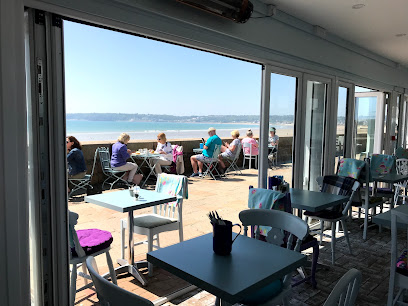
Corbiere Phare
Explore Corbiere Phare: A Stunning Lighthouse Experience with Breathtaking Views and Exquisite Dining Options in Jersey.
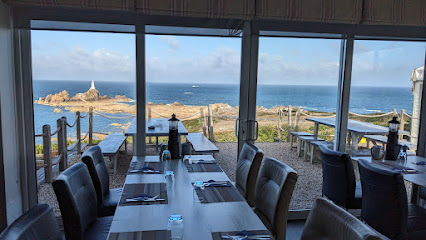
Mark Jordan at the Beach
Experience exquisite British seafood cuisine with breathtaking coastal views at Mark Jordan at the Beach in Jersey.
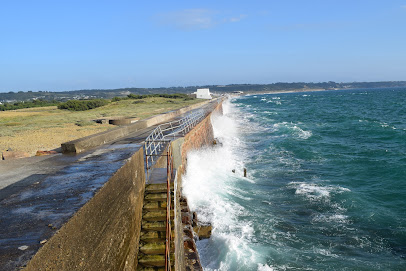
Le Moulin de Lecq
Discover Le Moulin de Lecq: A delightful restaurant and pub in Jersey offering local cuisine amidst stunning coastal views.
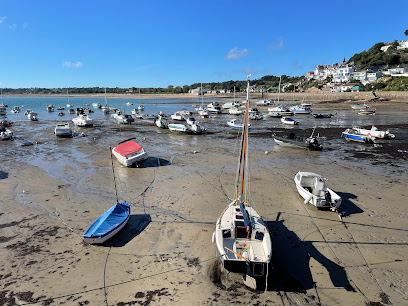
Bonne Nuit Beach Cafe
Experience exquisite Thai cuisine and breathtaking coastal views at Bonne Nuit Beach Cafe in Jersey.
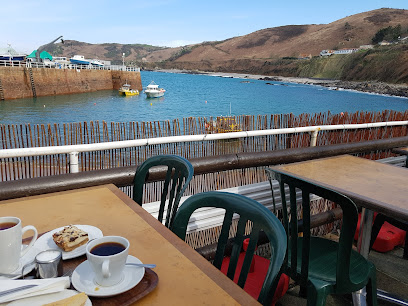
The Salty Dog - Cafe, Bar & Bistro
Experience exceptional dining at The Salty Dog - Café, Bar & Bistro in Jersey with fresh local ingredients and a vibrant atmosphere.
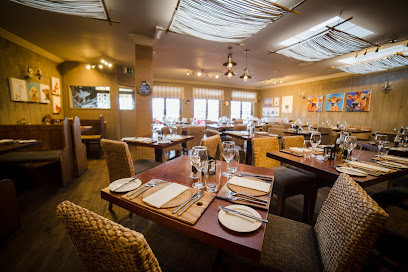
Les Fontaines Tavern
Experience authentic British cuisine at Les Fontaines Tavern in Jersey—a delightful spot for food lovers seeking local flavors and vibrant atmosphere.
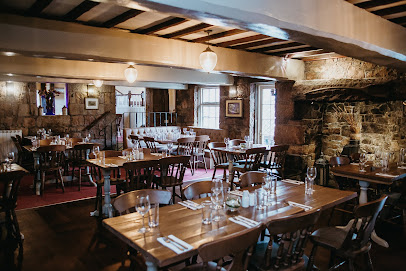
Cheffins at the Beaumont Inn
Discover exquisite dining at Cheffins at the Beaumont Inn, where local flavors meet modern cuisine in Jersey's beautiful landscape.
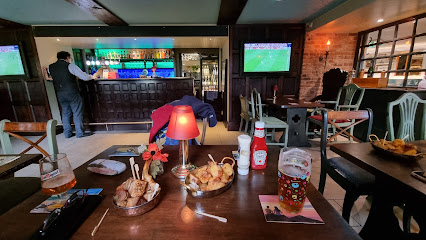
The Tipsy
Experience culinary delights at The Tipsy, Jersey's favorite restaurant known for fresh local ingredients and vibrant atmosphere.
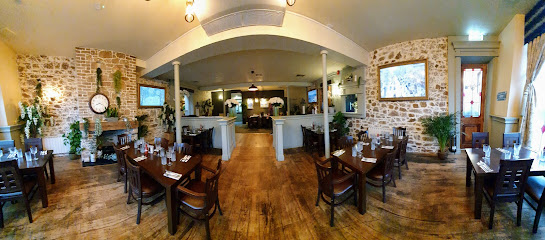
Kismet Cabana - Beach Club, Cafe & Restaurant
Discover Kismet Cabana: A charming beach club offering delicious dining experiences alongside stunning ocean views in Jersey.
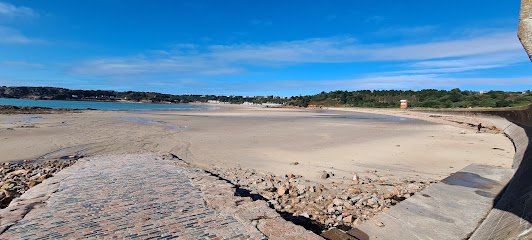
Moita's Bistro
Experience authentic Portuguese flavors at Moita's Bistro in St Helier - where every dish tells a story.
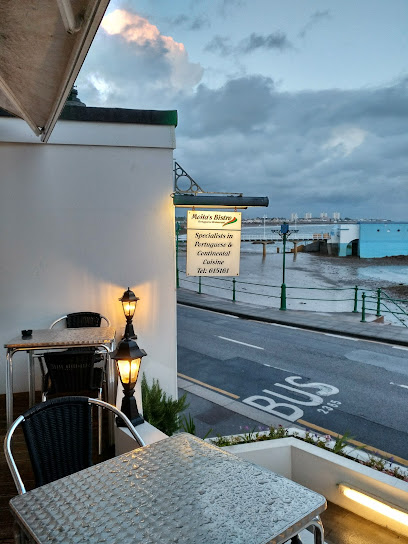
Lazin Lizard Restaurant
Discover Jersey's culinary delight at Lazin Lizard Restaurant - where fresh ingredients meet unforgettable flavors in a cozy atmosphere.
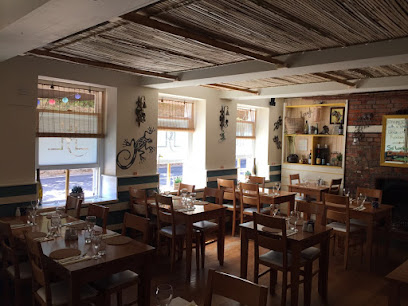
Markets, malls and hidden boutiques
Jersey Pearl
Experience the charm of Jersey Pearl: a unique blend of jewelry, culture, and cuisine in the heart of Jersey.
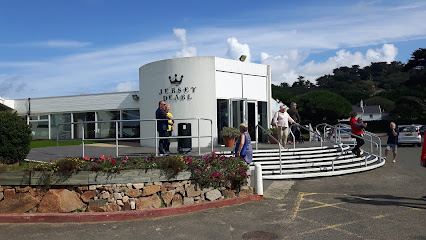
B&Q St Helier - Jersey
Discover B&Q St Helier: Your one-stop destination for home improvement, DIY supplies, and festive decorations in Jersey.

Liberty Wharf Shopping Centre
Experience the best of Jersey shopping at Liberty Wharf, a vibrant hub featuring boutiques, eateries, and stunning waterfront views.
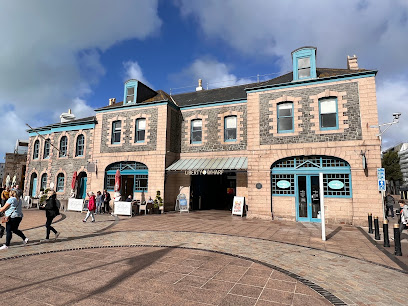
Jersey Lavender Ltd
Experience the calming beauty and delightful offerings at Jersey Lavender Ltd, a must-visit destination on the enchanting island of Jersey.
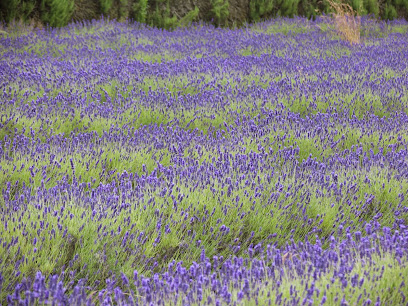
Rondels Farm Shop
Explore the best of Jersey's local produce and crafts at Rondels Farm Shop, a charming destination for food lovers and souvenir hunters.
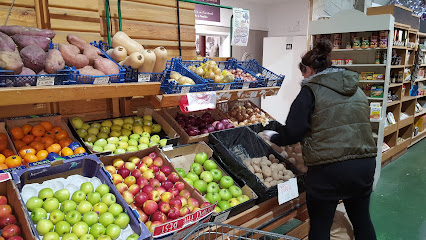
Catherine Best
Explore the artistry of handcrafted jewelry at Catherine Best, a premier jeweler in Jersey, blending tradition with contemporary design.
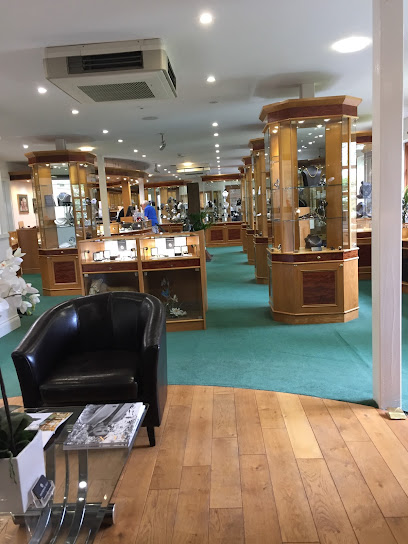
Six roads stores
Experience the local flavors and warm hospitality at Six Roads Stores, a charming grocery store in Jersey that offers a taste of island life.
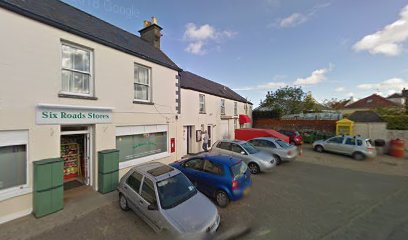
Stephen Cohu Antiques
Explore the charm of Jersey's past at Stephen Cohu Antiques, where timeless treasures await every collector and history lover.
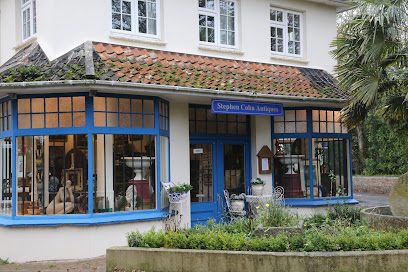
Maison De Jersey
Discover the charm of Jersey with unique souvenirs and gifts at Maison De Jersey, your go-to shop for local treasures in St Helier.
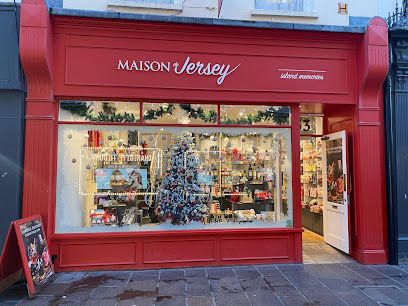
Madhatter Surf Shop
Explore the vibrant Madhatter Surf Shop in St Helier, Jersey, your ultimate destination for surf and skate gear, stylish apparel, and community.
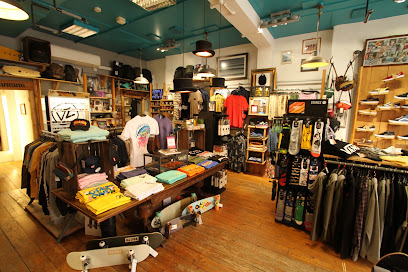
Made By Mums
Explore the enchanting world of creativity at Made By Mums, Jersey's premier craft store offering unique handmade gifts and supplies.
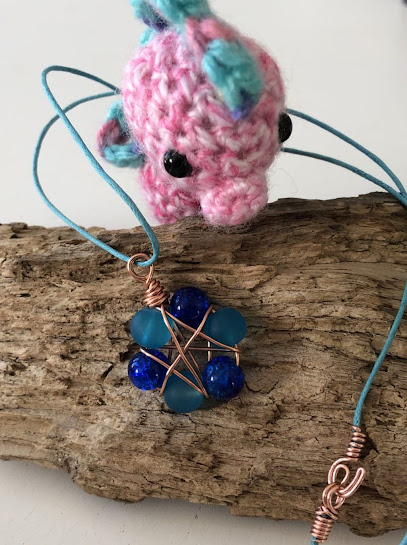
The Trading Point
Explore The Trading Point in Jersey for unique local crafts and souvenirs that embody the spirit of the island.
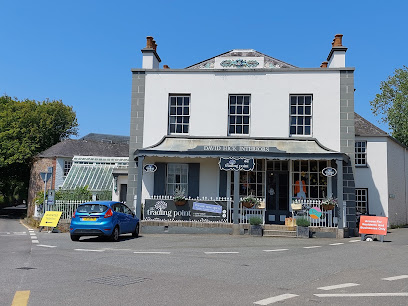
Manor Park Stores
Explore Manor Park Stores: Your Friendly Convenience Store in Jersey for Local Treats and Essentials.
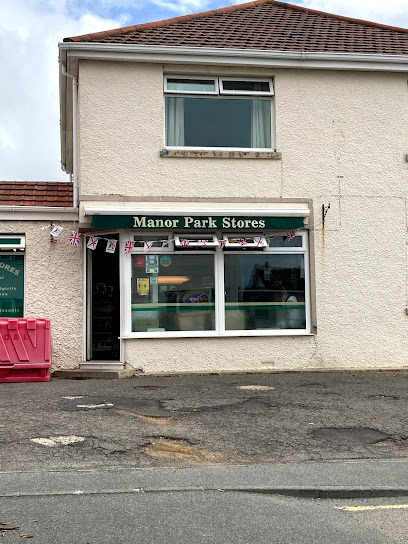
The Gooseberry Bush
Discover unique gifts and local artisan products at The Gooseberry Bush in Surville, Jersey - a perfect stop for tourists.
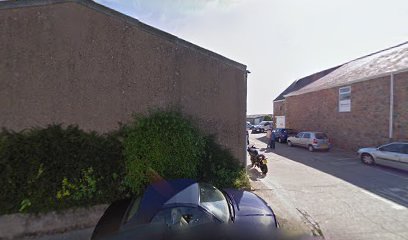
Ann Summers Jersey
Explore Ann Summers Jersey for a unique blend of alluring lingerie and adult entertainment in the heart of St. Helier.
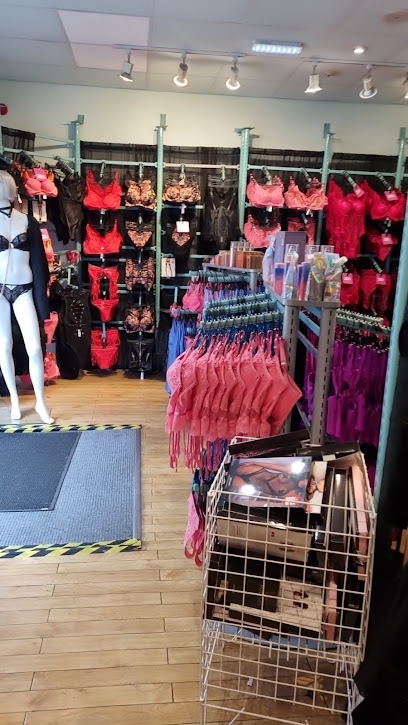
Essential bars & hidden hideouts
White Horse Pub & Dining
Experience the essence of Jersey at the White Horse Pub & Dining, offering a blend of traditional and modern cuisine in a charming coastal setting.
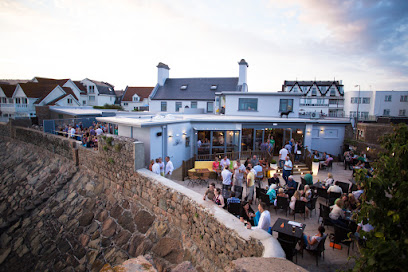
The Priory Inn Devils Hole
Experience the charm of Jersey at The Priory Inn, where delightful cuisine meets a warm atmosphere for every traveler.
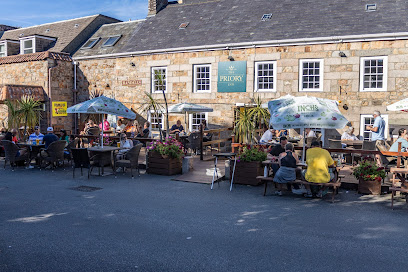
Old Smugglers Inn
Experience Jersey's coastal charm at Old Smugglers Inn, where local cuisine meets stunning sea views.
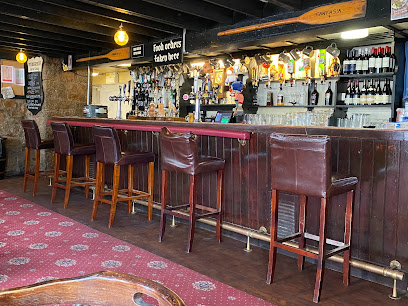
Le Moulin de Lecq
Experience the perfect blend of local cuisine and stunning views at Le Moulin de Lecq, Jersey's charming restaurant and pub.
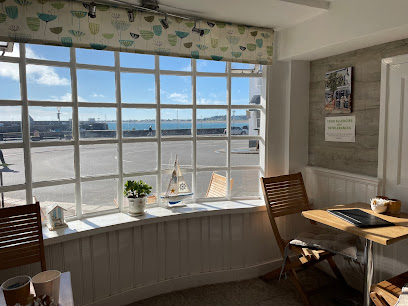
Les Fontaines Tavern
Discover Les Fontaines Tavern, a charming pub in Jersey that offers a delightful mix of British and European cuisine in a cozy setting.
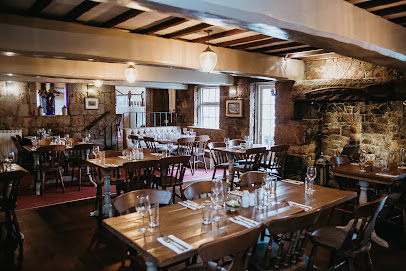
The Rozel Pub & Dining
Discover the charm of The Rozel Pub & Dining, where local flavors meet breathtaking views in the heart of Jersey.
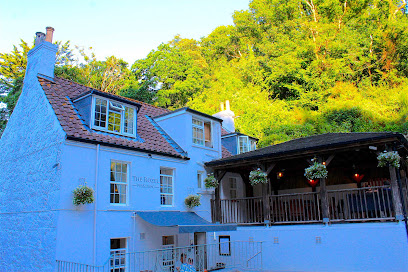
The Vic In The Valley
Experience the charm of The Vic In The Valley, a quintessential British pub in Jersey, offering hearty fare and a warm atmosphere for all visitors.
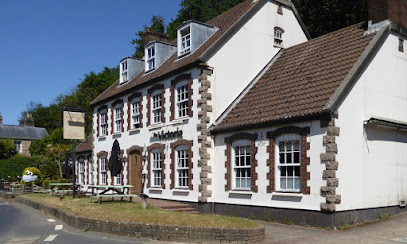
The Admiral Tavern - Randalls Pubs
Experience the charm of The Admiral Tavern, a beloved pub in Jersey offering local brews and delicious British cuisine in a warm, inviting atmosphere.
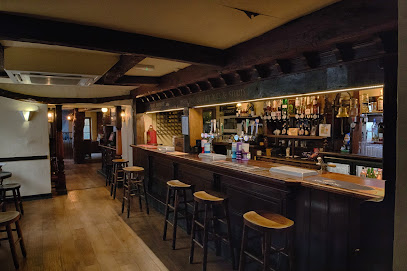
Vittoria
Experience the vibrant atmosphere and diverse drink selection at Vittoria, a premier bar in St Helier, Jersey, ideal for relaxation and socializing.
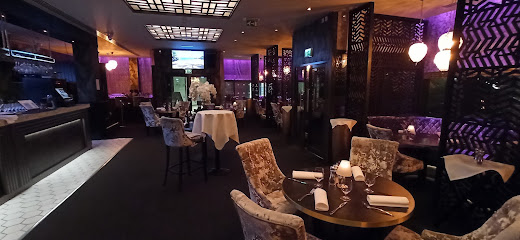
The Bacchus Bar- Randalls Pubs
Discover the heart of Jersey at The Bacchus Bar, where local flavors and vibrant atmosphere blend for an unforgettable experience.
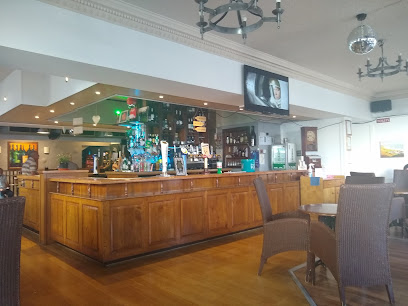
Horse & Hound
Discover the charm of Horse & Hound Pub in Jersey, where local flavors meet a warm and inviting atmosphere for an unforgettable experience.
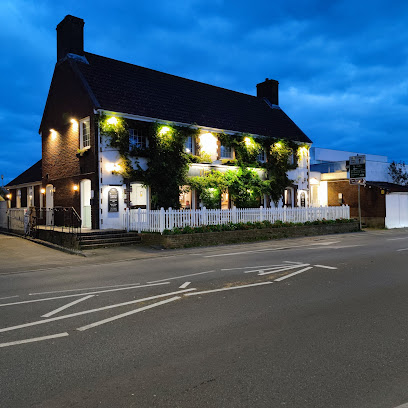
Prince's Bar
Discover the lively atmosphere and stunning coastal views at Prince's Bar, a top destination for tourists in St Helier, Jersey.
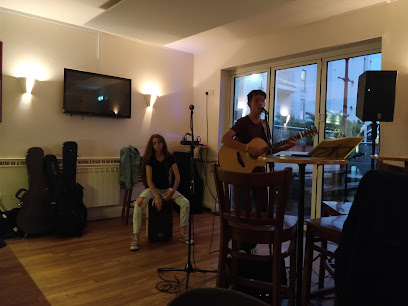
The Kings Bar
Discover the vibrant atmosphere and delightful drinks at The Kings Bar in St. Helier, Jersey's perfect spot for relaxation and socializing.
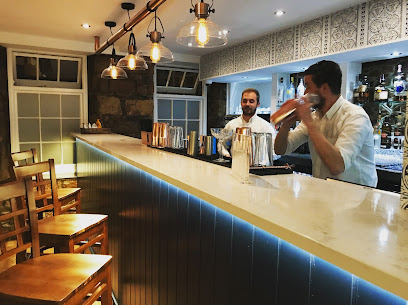
Saint Lawrence Pub
Discover the vibrant atmosphere of Saint Lawrence Pub, a perfect blend of local flavors and warm hospitality in Jersey.
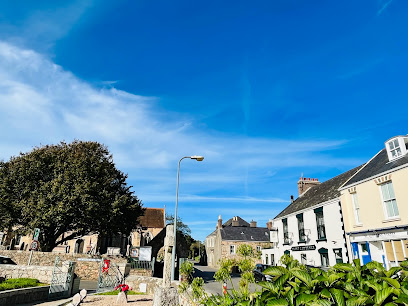
Local Phrases about Les Minquiers
-
- HelloSalut
[sa-LOO] - GoodbyeAdeu
[a-DYOO] - YesOui
[wee] - NoNon
[non] - Please/You're welcomeS'il te plaît / De rien
[seel tuh pleh / duh ryen] - Thank youMerci
[mehr-SEE] - Excuse me/SorryPardon
[par-DON] - How are you?Comment ça va?
[koh-mohn sah vah] - Fine. And you?Bien. Et toi?
[byen. ay twah] - Do you speak English?Parles-tu anglais?
[parl too ahn-glay] - I don't understandJe ne comprends pas
[zhuh nuh kohm-prahnd pah]
- HelloSalut
-
- I'd like to see the menu, pleaseJe voudrais voir le menu, s'il vous plaît
[zhuh voo-dray vwahr luh meh-NEW, seel voo pleh] - I don't eat meatJe ne mange pas de viande
[zhuh nuh mahnj pah duh vyand] - Cheers!Santé!
[sahn-TAY] - I would like to pay, pleaseJe voudrais payer, s'il vous plaît
[zhuh voo-dray pay-ay, seel voo pleh]
- I'd like to see the menu, pleaseJe voudrais voir le menu, s'il vous plaît
-
- Help!Au secours!
[oh seh-koor] - Go away!Allez-vous en!
[ah-lay voo ahn] - Call the Police!Appelez la police!
[ah-peh-lay lah poh-lees] - Call a doctor!Appelez un médecin!
[ah-peh-lay uh meh-deh-sahn] - I'm lostJe suis perdu
[zhuh swee pehr-doo] - I'm illJe suis malade
[zhuh swee mah-lahd]
- Help!Au secours!
-
- I'd like to buy...Je voudrais acheter...
[zhuh voo-dray zah-shay...] - I'm just lookingJe regarde juste
[zhuh ruh-gard zhoost] - How much is it?Combien ça coûte?
[kohm-byen sah koot] - That's too expensiveC'est trop cher
[say troh sher] - Can you lower the price?Pouvez-vous baisser le prix?
[poo-veh voo beh-say luh pree]
- I'd like to buy...Je voudrais acheter...
-
- What time is it?Quelle heure est-il?
[kell uhr ay-teel] - It's one o'clockIl est une heure
[eel ay oo-nuh uhr] - Half past (10)Dix et demie
[dees ay duh-mee] - MorningMatin
[mah-tahn] - AfternoonAprès-midi
[ah-pray mee-dee] - EveningSoir
[swahr] - YesterdayHier
[yehr] - TodayAujourd'hui
[oh-zhoor-DWEE] - TomorrowDemain
[duh-MAN] - 1Un
[uhn] - 2Deux
[duh] - 3Trois
[twah] - 4Quatre
[kat] - 5Cinq
[sank] - 6Six
[sees] - 7Sept
[sept] - 8Huit
[weet] - 9Neuf
[nuff] - 10Dix
[dees]
- What time is it?Quelle heure est-il?
-
- Where's a/the...?Où est le/la...?
[ooh ay luh/lah] - What's the address?Quelle est l'adresse?
[kell ay la-dress] - Can you show me (on the map)?Pouvez-vous me montrer (sur la carte)?
[poo-veh voo muh mohn-tray (sir lah kart)] - When's the next (bus)?Quand est le prochain (bus)?
[kahn ay luh proh-shahn (bus)] - A ticket (to ....)Un billet (pour ....)
[uhn bee-yay (poor ....)]
- Where's a/the...?Où est le/la...?
History of Les Minquiers
-
Les Minquiers, often referred to as 'The Minkies,' are a group of islands and rocks situated about 15 kilometers south of Jersey in the English Channel. These rocky outcrops are remnants of ancient geological activities, primarily composed of granite and other igneous rocks. The archipelago's formation dates back millions of years, with the current landscape shaped by the erosion and weathering processes that have occurred over millennia.
-
Evidence suggests that Les Minquiers have been visited by humans since prehistoric times. Archaeological finds, including flint tools and pottery shards, indicate that early hunter-gatherers used these remote outcrops as temporary shelters or hunting grounds. The islands' strategic location made them a vital point for maritime navigation and fishing activities throughout history.
-
During the medieval period, Les Minquiers were under the control of the Duchy of Normandy. The islands were used as fishing grounds and occasionally served as a refuge for sailors and fishermen. Records from this era mention the presence of temporary huts and shelters built by fishermen who frequented the area.
-
Les Minquiers have been a subject of territorial disputes between France and the United Kingdom for centuries. The most notable conflict occurred in 1953 when the International Court of Justice (ICJ) was called upon to resolve the sovereignty issue. The ICJ ruled in favor of the United Kingdom, affirming that Les Minquiers were part of the Bailiwick of Jersey.
-
During World War II, Les Minquiers played a minor but notable role. The islands were occupied by German forces along with the rest of the Channel Islands. German soldiers constructed small fortifications and observation posts to monitor naval activities in the surrounding waters. Remnants of these wartime structures can still be seen today.
-
Les Minquiers are home to a unique ecosystem, supporting various species of seabirds, marine life, and flora. The islands are part of the Ramsar Convention, an international treaty for the conservation and sustainable use of wetlands. Efforts have been made to protect the delicate environment from human impact, ensuring that this natural habitat remains pristine for future generations.
-
Today, Les Minquiers are a popular destination for tourists and nature enthusiasts. The islands' remote location and unspoiled beauty offer a unique escape from the hustle and bustle of modern life. Visitors can explore the rocky shores, observe diverse wildlife, and even stay in one of the few remaining fishermen's huts, experiencing the tranquility of this enchanting archipelago.
Les Minquiers Essentials
-
Les Minquiers, often referred to as 'The Minkies,' is a group of islands and rocks located 9 miles south of Jersey in the Channel Islands. The most common way to get there is by boat. Several local companies offer charter services from Jersey's main port, St. Helier. Make sure to check the schedules and weather conditions ahead of time, as trips are highly dependent on tides and weather.
-
Once you arrive at Les Minquiers, mobility is generally limited to walking as the islands are small and mostly rocky. There is no public transportation on Les Minquiers, and the terrain is not suitable for vehicles. If you plan to explore the area, good walking shoes are essential.
-
The official currency in Jersey is the British Pound (GBP). While on Les Minquiers, there are no facilities for transactions, so ensure you carry enough cash for any services you might need before you depart from St. Helier. Credit and debit cards are widely accepted in Jersey, but not on Les Minquiers due to the lack of infrastructure.
-
Les Minquiers is generally safe, but it's crucial to be cautious due to its remote nature. There are no known high-crime areas targeting tourists. However, always keep an eye on the tides, as they can change rapidly and leave you stranded. Make sure to have a reliable means of communication and inform someone of your travel plans.
-
In case of emergency, contact the Jersey Coastguard via marine VHF radio. Mobile phone coverage can be unreliable, so it's advisable to have a marine radio. There are no medical facilities on Les Minquiers, so any serious medical issues will require evacuation to Jersey. Ensure you have comprehensive travel insurance that includes emergency evacuation coverage.
-
Fashion: Do wear comfortable and sturdy footwear suitable for rocky terrain. Dress in layers as the weather can be unpredictable. Religion: There are no specific religious customs to observe on Les Minquiers. Public Transport: There is no public transport on the islands. Greetings: Standard greetings suffice, but be respectful if you encounter other visitors or local fishermen. Eating & Drinking: Do pack all necessary food and drink as there are no shops or restaurants. Always take your litter back with you to maintain the pristine nature of the islands.
-
To experience Les Minquiers like a local, consider joining a guided tour from Jersey, where knowledgeable guides can share interesting facts and history about the islands. Bird watching is popular, so bringing binoculars can enhance your visit. Always check the tide schedules, as the islands' size can vary dramatically with the tide. Engage with local fishermen if you have the chance; they often have fascinating stories to share about the area.
Trending Landmarks in Les Minquiers
Nearby Cities to Les Minquiers
-
Things To Do in Trinity
-
Things To Do in St. Clement
-
Things To Do in St. Lawrence
-
Things To Do in St. Helier
-
Things To Do in St. Peter
-
Things To Do in St. Aubin
-
Things To Do in St. Ouen
-
Things To Do in St. Brelade
-
Things To Do in St. Anne
-
Things To Do in St. Peter Port
-
Things To Do in St. Sampson
-
Things To Do in St. Martin
-
Things To Do in St. Andrew
-
Things To Do in Forest
-
Things To Do in Vale





